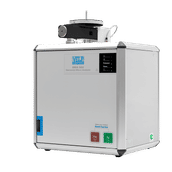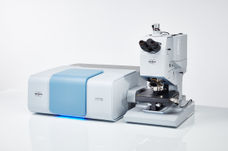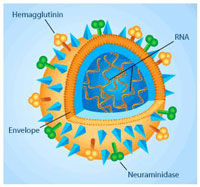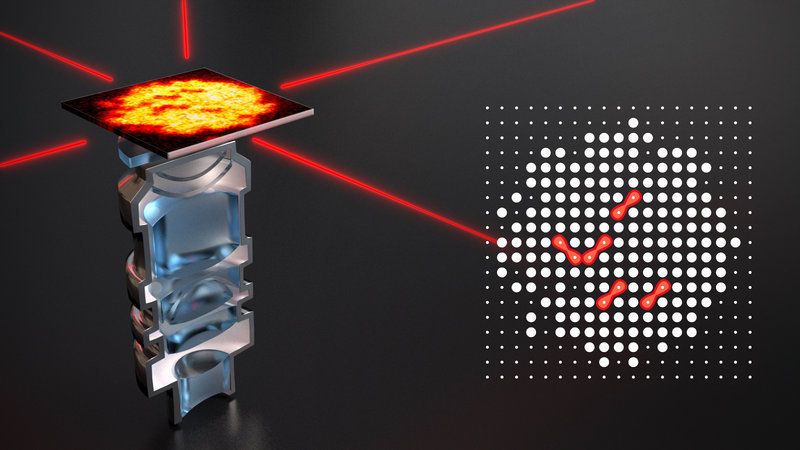New Drug Delivery Techniques Aim to Improve Overall Drug Performance and Efficacy
Quantum leaps made in the field of proteomics, genomics and biotechnology are creating revolutionary therapeutics that require equally impressive drug delivery systems in order for patients to derive optimum benefits. This, coupled with patent expirations and subsequent competitive threats from lower priced generics, is compelling pharmaceutical companies to investigate these innovative drug delivery solutions.
"There is now a growing realisation that innovative delivery of drugs would not only increase safety and efficacy levels but also improve the overall performance of the drug," says Technical Insights Research Analyst S. Ravi Shankar from Frost & Sullivan.
Advances in drug delivery systems are also expected to offer a host of additional advantages such as ease of administration, increased patient compliance, decreased side effects and cost reduction. Moreover, novel drug delivery techniques are value-added features for which companies can charge a premium due to the increased convenience they provide to patients. Macromolecular drugs, which are larger compared to conventional therapies, demand superior delivery platforms for greater efficacy. Emerging technologies, such as medicated powders pumped into the skin at supersonic speeds, implanted microchips that deliver precise dosages and nanomolecular transportation systems, are vying for commercial acceptance in a competitive market. While most blockbuster drugs are in the hands of select pharmaceutical companies, numerous drug delivery companies have also become more proactive in participating in the drug development procedure.
"Drug delivery companies have already started developing their own formulations which they can combine with their drug delivery platforms," observes Mr. Shankar. "This allows them to reduce dependency on the pharmaceutical majors for newer drugs and simultaneously augment market revenue."
While drug delivery plays an important role in enriching drug performance, researchers are concentrating on using delivery as a means to reduce dosage frequency, preferably through non-invasive methods.
"Multiple injections required per week or day could be replaced by once a month dosages or even longer intervals, which would stabilise blood levels of the medication, thereby enhancing treatment outcomes and patient compliance," notes Mr. Shankar.
The oral route is expected to be the most dominant technique, followed by the pulmonary route, which is being explored for the delivery of insulin. Researchers in Italy are developing a customised oral drug release technology, which would provide optimum release profiles for single or combination and soluble or insoluble drugs.
In this technique, there is complete dissolution of the tablet, which enables precise and controlled drug release. Other advantages include high drug loading capability, fine tuned release rates for targeted delivery and content uniformity for more accurate dosing. In the United Kingdom, a novel delivery technique in the form of drug-eluting beads is being looked into for treatment of liver cancer. The residing time of the drug in the bead matches the local elution profile resulting in sustained and slow release within the target tumour site. Polymers are also emerging as potential drug delivery routes for the treatment of cancer. Compared to conventional drug delivery practices polymers offer improved efficacy, reduced toxicity and increased patient compliance and convenience.
While the inhalable, buccal, lingual and nasal routes are in nascent stages of development, they are considered essential for effective delivery of biotechnology drugs. Apart from vaccine delivery and analgesics, the nasal route is likely to be particularly useful for the central nervous system (CNS) applications, since the olfactory region of the nasal cavity could provide a more direct access for targeted drug delivery to the brain. In the United Kingdom, researchers are developing an intelligent inhaler that automatically responds to breathing patterns for delivering precise doses of the drug. This revolutionary system reduces medication levels and shows immense potential for delivering biological drugs.
If you are interested in an analysis which provides manufacturers, end users, and other industry participants with an overview, summary, challenges, and latest coverage of Drug Delivery: Analysis of Cutting-Edge Technologies and Trends then use the contact but to get an overview e-mailed to you.
Most read news
Topics
Organizations
Other news from the department business & finance
These products might interest you

CHSN-O, CN and N Elemental Analyzers by Velp Scientifica
State-of-the-art Elemental Analyzers for N, CN and CHSN-O in organic samples
Consistency, ease of use, and premium features for elemental analysis following official standards

HYPERION II by Bruker
FT-IR and IR laser imaging (QCL) microscope for research and development
Analyze macroscopic samples with microscopic resolution (5 µm) in seconds

Get the analytics and lab tech industry in your inbox
By submitting this form you agree that LUMITOS AG will send you the newsletter(s) selected above by email. Your data will not be passed on to third parties. Your data will be stored and processed in accordance with our data protection regulations. LUMITOS may contact you by email for the purpose of advertising or market and opinion surveys. You can revoke your consent at any time without giving reasons to LUMITOS AG, Ernst-Augustin-Str. 2, 12489 Berlin, Germany or by e-mail at revoke@lumitos.com with effect for the future. In addition, each email contains a link to unsubscribe from the corresponding newsletter.





























































